|
The Celtic Connections Festival also sponsors talks throughout the community. I attended one talk featuring Vox Liminis and its Distant Voices project, which uses the power of songwriting to "write and record songs that express and challenge the ways we think and feel about crime, punishment and reintegration." Scottish songwriters team with people who have some connection with criminal justice system including:
As part of the Q&A, an audience member asked, "Is Reintegration made easier by letting go of your story through this songwriting process?" The response was multi-faceted. Often songs explain the why things happened, which can often be about just one bad mistake. Others shared that we are not defined by just one story. Sometimes the story is cornered by the system and songwriting allows you to tell the story in a different way or tell a different chapter in oneʼs life. Distant Voice debuted its most recent album, Not Known at This Address, as part of the Celtic Connections festival. Here is one of the songs, Frankieʼs Song.
0 Comments
What better way to understand the benefits of informal and non-formal learning than to experience it first-hand. This is one reason why I registered for mandolin and fiddle group lessons through the Glasgow Fiddle Workshop (GFW). Using traditional Scottish music, GFW offers group lessons for a variety of musical instruments, including fiddle, accordion, mandolin, guitar, banjo, bodhran, whislte, harmonica, small pipes and song. The other reason why Iʼm taking lessons at GFW is that I want to feel part of a community in Glasgow and playing music together always opens that door for me. The other reason is that I want to feel part of a community here and playing music together always opens that door for me. The first night of classes teamed with enthusiasts - many of whom had taken a "Try Your Hand at ... " (mandolin, fiddle, accordion, harp and whistle) workshop at the Celtic Connections Festival. What was so refreshing to see that first night at GFW was the host of mature or seasoned adults in attendance. There were refreshments with a donation cup, live music playing in the background, and people chatting away. The feel in the room was welcoming, warm and inclusive. All of the class instructors teach music by ear. According to the GFW website, "Scottish traditional music is part of an oral tradition which has been passed down over hundreds of years. Many of the tutors learned to play this way and find this method works really well when teaching groups of people. GFW are keen to preserve this tradition and have made it part of the GFW ethos." As a classically-trained pianist, I lost the confidence to improvise and create my own music because I played what was on the sheet music without deviating. Now, years later I don’t want my students to have the same experience that I had. By having the full skill set to integrate informal learning practices, I want to help students navigate both classical and popular music worlds by reading music and playing by ear; performing in an orchestra and rock band and integrating technology. The GFW tutors encourage students to move freely among the different ability-leveled classes not only on the first night, but any night. Whatʼs most important is that learners find a learning context that suits them. Generally one or two pieces are taught each week. Students can record the tutors to help with their practice at home and can access additional repertoire on the GFW website, which includes both sheet music and an audio recording. In addition to the weekly sessions at Glasgow Kelvin College, GFW holds these sessions at local pubs: slow jams twice a month, very slow jams once a month, and more advanced sessions every Monday after class. And a half before each class on Mondays or Wednesdays, sessions are held in the commons a half hour before (see photo below). I am looking forward to this part of my research project. Playing by ear has always terrified me, yet I know itʼs a skill that will make me a more versatile and confident musician. I canʼt think of a better place to try it. The folks at GFW are encouraging, humorous and genuinely interested in creating community through music-making. Below is a short video introducing the work of GFW. I have thoroughly enjoyed the Creative Contexts for Learning in Music course at the University of Strathclyde for pre-service music teachers, which meets twice a week to prepare students for their remaining two school music placements, each six weeks in length. This class of twenty students welcomed me into their community, and I will miss them when they begin their placements in February. Paul Wickham, my host advisor, leads and organizes these classes. He is well-loved and respected by the class and I can see why: Paulʼs high expectations and practical knowledge are balanced by his sense of humor and constant communication. Laughter, music-making and lively discussions permeate these walls. For the past two weeks, Paul invited teaching artists from the community to share their expertise in jazz improvisation and music technology. The photo above captures the music technology session led by Craig Cuthbertson. Using online and recorded sounds, the class worked in teams to create a soundtrack for an animated short, Fugu, which is an assignment given in secondary music classes. Alan Benzie opened the Jazz Improvisation session by inspiring us with a live performance from his jazz trio. Their newest album, Little Mysteries, recently won best album in the Scottish Jazz Awards. Here is their piece, The Warrior Who Became a Tiger. Alan then gave a brief history of jazz: an African-American music genre originating in New Orleans with roots in blues and ragtime. Improvisation, syncopation, rhythm and call and response are some of the key elements. He then modeled how to teach these elements in the school music:
Alan then broke down an example of a New Oreans early groove known as the 2nd Line by having us clap each part of the kit drum - high hat, snare and bass drum - first in isolation and then simultaneously in three groups. Throughout the class, I was reminded of the Lincoln Centerʼs Let Freedom Ring series, which features Wynton Marsalis and Sandra Day OʼConnor and illustrates the ideals of American democracy through the lens of jazz. In todayʼs political climate, this series is worth posting - both as a valuable resource for integrating music in the social studies curriculum and as a reminder of the principles of which our country is founded. As part of my inquiry project, I am researching how informal learning settings support an individualʼs well-being, creativity and identity. The Celtic Connections Music Festival workshops are just such a setting where learning is intentional but less structured and take place in the local community. I participated in several workshops: Storytelling, Try Your Hand at the Whistle, Step Dancing and Body Percussion, Try Your Hand at the Mandolin, and the Big Slow Session with Nigel Gatherer. What was so refreshing at all of these workshops was how multi-generational they were. From the get go, instructors created a culture of inclusion and belonging - everyone is a musician (which is true!) In particular, I was impressed with Nigel Gatherer who led the Big Slow Session, a menagerie of instruments including mandolin, fiddle, accordion, tin whistle, flute, ukulele, keyboard, guitar and drums. Nigel began the session by weaving his way through the group, making jokes and welcoming those who looked a bit intimidated. He then got everyoneʼs attention by saying, “My goal is for us to have fun, put a smile on your face and play music with each other at a slow, easy pace. Itʼs about learning tunes, which are easier to learn with fewer notes.” After playing a D scale, he than asked us to take out the G and C#. We played our new scale (G pentatonic) or what Nigel termed "the magical notes that allow you to play anything. You can noodle about with these notes and we all sound good." He asked us to play the magical notes by age groups, starting from oldest to youngest, by shouting out, "Anyone 60 or above...anyone 50 and above..." until he reached those under ten. Then so as not to be too intimidating he said, “Only play if youʼre young at heart." And with a burst of laughter from the group, everyone played with enthusiasm. Nigel then shared his secret to learning tunes: understand the structure. Most Scottish tunes have an A part (repeated) and a B part (repeated). Within each part, the tune is divided into 4 phrases of 2 measures each – of which many are repeated or change just slightly. He explained that this approach allows us to use a reduced palette to make learning by ear and remembering easier. He then launched into a group composition 2 beats at a time. He was like a chef, sprinkling bits of Part B with A to create a new B part. We then performed part A and performed the newly composed B part. At the heart of all of this, whether telling a traditional story or performing traditional music, the leaders of these workshops modeled that these art forms are meant to be altered as long as the basic structure or framework remains. In fact in my storytelling workshop, traditional storyteller Heather Yule likened her craft to music: the theme is the melody, but you as the storyteller add grace notes, flourishes, etc. that will change each time you tell it. This sense of lightness, joy and creative spirit shone through when Heather shared her definition of a ceilidh or a social gathering with Scottish music, singing, traditional dancing and storytelling is all about: "Tell a story, sing a song, show your bum and out you go!" Oh yes, and humor also plays a big part in all of this! When I asked Nigel if I could videotape our final piece for my students and friends back in Juneau, he and the entire grand session of musicians gladly obliged.
What I have learned as a teacher, musician, and community member is that whether dealing with historical or present trauma, the arts are a way for humans to process, express, communicate and heal from something too complex or too difficult for words. The communities of the Outer Hebridean islands have chosen many art forms to help honor the men of the Iolaire and help its community heal from this tragic loss. January 1, 2019 marked the 100th anniversary of the shipwreck of the HMY Iolaire. Two hundred of the men died just 20 yards off shore from Stornoway harbor and the returning sailorsʼ home island of Lewis. Very little was spoken about this tragedy even though it was the UK’s worst peacetime maritime disaster since the sinking of the Titanic and left a community traumatized - dealing with the loss of a generation of men. Two musical compositions were commissioned to commemorate this disaster and I attended both as part of the Celtic Connections music festival. In preparation for the concerts, I researched the history of the Iolaire and learned that the men onboard were heading home from the end of the World War I and anxious to be with their families for the New Year. Due to navigational error, the ship hit the rocks known as the Beasts of Holm. Even only yards away from shore, the winter seas were so harsh that men in life boats or wearing life jackets drowned. Only 79 men survived, 40 of whom were helped ashore by the heroic act of John Finlay Macleod. His local knowledge of the waters helped him strategically time his journey to shore. He knew that seven smaller waves were followed by three bigger ones. It was this third wave that carried him over the rocks to make it to shore and inspired the title of one of the commissions by Gaelic singer, Julie Fowlis, and fiddler, Duncan Chisholm: An Treas Suaile (The Third Wave). Although there are no videos or audio of this commission, here is an example of the beautiful collaborative work that Julie Fowlis and Duncan Chisolm do: The second commissioned work by composer, Iain Morrison and imagery by Dalziel and Scullion is titled Sal, which can mean salt, saltwater, the open sea and tears. According to this BBC article, a public inquiry into the Iolaire lasted only two days. Many on the island felt that this tragedy contributed to future emigration from the Western Isles for over one thousand men from these islands had already died during the war. It felt surreal watching these commissions after having just seen an Alaskan opera commemorating the 100th anniversary of the sinking of the Princess Sophia when it hit the Vanderbilt Reef in the Lynn Canal in October 2018. There was little news covering this tragedy because it was overshadowed by the armistice of World War I. People wanted to hear happy news. Whether in Alaska or Scotland the people of these more isolated areas are using the arts to honor, process and heal. Scotland was the first worldwide to designate 2018 The Year of Young People (YOYP). As part of this initiative, young people were given opportunities to participate in cultural and sporting events and make decisions on issues affecting their lives, including co-designing the YOYP program with more than 500 signed up to volunteer as YOYP Ambassadors. Celtic Connections continued this theme throughout its 2019 winter festival. I was most inspired by the work of Fèis Rois who performed opening night. According to their website, Fèis Rois (2019) "aims to give young people and lifelong learners the opportunity to experience and enage with traditional music and Gaelic culture in a way that supports them in developing their social skills and inspires them to reach their full potential." They offer programming year-round in both formal and informal learning environments. The project unveiled at Celtic Connections was a collaboration between two groups of young musicians from Ross-shire and acclaimed fiddler and composer Duncan Chisholm. Together they researched a local story, created a film, and composed the soundtrack. It is the kind of project I would like to bring to Juneau and JAMM where students take the lead in designing, composing and recording their work. Another example of youth-led enquiry happened in a Health and Well-being course that I attended for preservice teachers at the Universiy of Strathclyde. The Scottish government defines health and well-being as not one single subject or class, but rather six areas integrated throughout a childʼs schooling:
Space Unlimited visited our class to model the work they do in youth-led enquiry in schools. Their approach places students in roles of leadership where they identify their own needs, generate ideas and agree upon actionable solutions to answer the question, "How can we better support young peopleʼs health and well-being?" The studentsʼ solutions to their own health and wellbeing challenges are then integrated into school improvement objectives.This 3-day process supports Scotlandʼs National Health and Wellbeing Outcome 1: "People are able to look after and improve their own health and wellbeing and live in good health for longer." Space Unlimited embeds these key principles and methodologies throughout the participatory process:
Education Scotland outlined what children should expect from a learning environment to support their health and well-being. The arts, like the Kin and Community Project above, can support many of them, including:
Making a link to my community in Juneau, this Youtube video of Arias Hoyle, a high school student from Juneau, Alaska, demonstrates how music and culture can support well-being. For example, the lyrics of his rap include "Iʼm not smoking cannibis, this is just some salmon meat" (smoked salmon that is).
One thing Iʼve learned in my one short week here is that People Make Glasgow! Voted #1 by the readers of Rough Guides as the worldʼs friendliest city, I have experienced this generous spirit at every turn. Three experiences this week deserve particular mention.
1. Glasgow Girls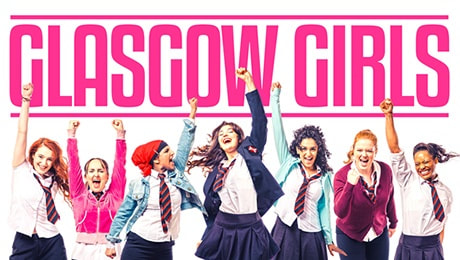
My birthday was this week so I treated myself to one of my favorite things: musical theater. Through my search I found a musical called Glasgow Girls, which is based on the true story of how a Glaswegian community rallied behind seven teenagers who fought to keep their school friend and asylum-seeking family from being taken from their home and deported. Itʼs a very inspiring story. I watched the documentary before going to the show and was inspired by the strength of these young girls, the support from their school and English as a Second Language (ESL) teacher, and their neighborhood who took turns keeping watch to alert asylum-seeking families when security forces were arriving. According to a BBC News report, Glasgow is one of the top five communities in the UK to take in Syrian refugees and asylum seekers relative to its population. At the theater, you could hear the pride in the applause and cheers coming from this Glaswegian audience.
The Glasgow Girls from SImon Parsons on Vimeo. 2. Celtic Connections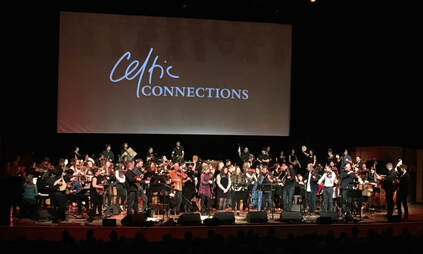
In 2008 Glasgow was designated a UNESCO Creative City, recognized for its contribution to the field of music. Celtic Connections is testimony to this designation and is the largest winter music festival of its kind and the UKʼs premier celebration of celtic music. Over three and a half weeks, this winter festival holds 300 events, 20 venues, featuring 2,100 artists from across the globe.
The photo above is from opening night at the Glasgow Royal Concert Hall featuring the Orcadian youth music project Hadhirgaan, SonDeSeu - Galician folk orchestra (the most southern member of the Celtic League) and excerpts from the Feis Rois commission, Kin & the Community. It was at this opening night where I first learned that the Scottish government designated 2018 as the Year of Young People, a global first, which provides a platform to showcase the achievements of Scotlandʼs young people. Celtic Connections extended this theme into its 2019 festival by having some of the top Celtic soloists play alongside budding young artists. More on all of this in the next blog posting. Below is a video of SonDeSeuʼs music from a 2014 concert. 3. Foundry Courtyard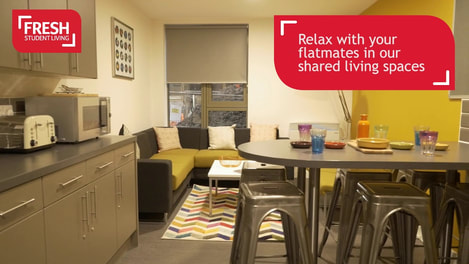
So even though I had an incredible birthday celebrating it with the Glasgow Girls, I think being away from my close-knit Juneau community and Glacier Valley family hit home at the end of the week. I had a moment of forgetfulness that involved the kind folks at my dorm, Foundry Courtyard, a private hall for students attending nearby universities including University of Strathclyde, City of Glasgow College, Glasgow Caledonian College and the Royal Conservatoire of Music. Once I realized my mistake, I apologized to Layla and Bill who greet me every morning at the reception window and confessed that Iʼd been feeling a bit homesick because I usually celebrate my birthday at school, at home and with friends. Itʼs just different being so new to Glasgow. I really enjoy my flatmates - four in all - who come from Burkina Faso, Germany, India, and Scotland. We each have our own room with a bathroom, but share the kitchen space (photo above). Itʼs been a respectful and friendly living arrangement - both in my flat and the building. And I have to admit, I was more than a bit worried entering into a shared dorm space being 30 years their senior, but all was for naught. I couldnʼt have found a more convenient, affordable and welcoming place to live and recommend Foundry Courtyard in a heart beat. In fact, this is what I found waiting for me when I returned from campus that same day that I had apologized to Layla and Bill (see below). I do have a community here and yes, People Make Glasgow!
The School of Education at the University of Strathclyde is my host institution through the UK-US Fulbright Commission and is the leading provider of teacher education in Scotland. Since my inquiry project uses a cross-disciplinary approach to examine how music can help develop student agency, creativity and well-being, I was excited to learn that Strathclyde School of Education focuses its research on these nine themes:
They also have three centres residing within the college: the Confucius Institute for Scotlandʼs Schools, SCIL: Scotlandʼs National Centre for Languages, and Autism Network Scotland. As part of this sponsorship, I can audit courses, help teach classes and give presentations. The two courses I am taking are Informal Learning and Positive Psychology. In the short week that Iʼve been here, I already can see how the college approaches learning through a scholar-practitioner, cross-disciplinary, international and lens. Linda Brownlow, the Head of School, has connected me with faculty across the college who might be able to help me with my inquiry project. Paul Wickham, my university host, also has been extremely helpful and is a secondary music teacher on secondment, which means he has been released from his secondary school teaching duties for two years to teach music courses for Strathclydeʼs music education teacher program. This arrangement allows school teachers to bring practical experience and application to college courses, while giving time for them to engage in scholarly work before returning to their school assignment. Through this arrangement, both institutions and their students can benefit. This video from the University of Strathclyde shares why studying in Glasgow is such a rewarding one. I have to agree! The University of Southampton kindly hosted the US-UK Fulbright Forum on its waterfront campus. The focus of this 3-day forum examined present and future global challenges facing coastal communities. On our first day, we were treated to a behind-the-scenes tour of The National Oceanography Centre Southampton (NOCS), one of the worldʼs leading research centers for the study of ocean and earth sciences, including rock preparation laboratories, paleomagnetism and environmental magnetism laboratory, and a multi-use aquarium and coral laboratory. At the end of our tour, the guide asked us to remember one thing: all of the work and advancements accomplished at NOCS occurred through a collaborative and cross-disciplinary spirit. NOCS is also the home of an Autosub, called Boat McBoatface (pictured below). This name won an online social media poll to name a new polar research vessel. Instead, the vessel was christened the RRS Sir David Attenborough to better align with the vesselʼs mission, but to honor the publicʼs choice in some manner a new Autosub was named Boaty McBoatface. My colleagues, Keith Thompson and Shana Ferguson, also wrote about their experiences of our Southhampton worth checking out. The second day the university organized tours of the Portsmouth dockyard where we learned about the Mary Rose shipwreck project and toured the HMS Victory, a living museum to the Georgian Navy. While walking on the docks, we stumbled upon the International Boatbuilding Training College (pictured below) which teaches the techniques of traditional wooden boatbuilding. It was housed in a beautiful space, which had a coffee house at the back of the building so that coffee goers would walk around the work and be able to look down upon it from their table. Juneau is revitalizing its docks and harbor. A space like this could be a good fit for our maritime community. The final day began with presentations from Southampton Marine and Maritime Institute (SMMI) who partners with organizations and universities across the globe to research topics related to our oceans, including climate change. During the Q&A, I shared that at least 31 Alaskan coastal communities may need to relocate as sea ice, which protected towns from erosive waves, disappears. To help prepare me for the forum, Senator Lisa Murkowskiʼs office kindly forwarded me documents related to the impact of climate change on Alaska. The Fourth National Climate Assessment Volume II: Impacts, Risks, and Adaptation in the United States published by the U.S. Global Change Research Program (USGCRP) dedicated one of its chapters to Alaska. In its Executive Summary, the report stated that "Ocean acidification is an emerging global problem that will intensify with continue carbon dioxide emissions and negatively affects organisms...Degradation of permafrost is expected to continue, with associated impacts to infrastructure, river and stream discharge, water quality, and fish and wildlife habitat" (2018). I greatly appreciate Senator Lisa Murkowski for drafting a letter specific to my request and desire to share Alaskaʼs story and perspective at the Fulbright Forum. Rather than a carbon tax, Senator Murkowski is in favor of developing renewable energy. She stated, "As a life-long Alaskan I certainly share your concern with the potential impacts of a changing climate on Alaska. I have certainly seen the effects of Arctic warming over the past several decades, which is why in January of last year, I joined 97 other Senators to vote in favor of an amendment affirming this fact. More recently I have been passionate in my efforts to pass comprehensive energy legislation, the Energy Policy Modernization Act, which would promote development of renewable energy." I believe the University of Alaska could be an important future partner with the University of Southampton.
The culmination of our time in Southampton ended with presentations by every Fulbrighter. We were divided into groups, and I was fortunate to be in sessions related to public health, the arts and humanities. As part of my presentation, I expressed my shared my goal of learning in more depth how the number of Gaelic speakers has increased so that I can help efforts back in Juneau to revitalize the Tlingit language, which has fewer than 200 fluent speakers. I ended the presentation singing a song in Tlingit from the Sealaska Heritage Educational Resources so that people from all over the US can hear and speak some of this beautiful language.
A sincere thank you to the entire team at University of Southampton for hosting this Fulbright Forum, which organized intellectual and interactive presentations, on-site tours of Southampton and Portsmouth, and opportunities for Fulbriyhters to connect and keep in touch. Next stop, Glasgow! I leave the United States for Glasgow, Scotland, in three days and am excited to share my experiences as a Fulbright Distinguished Award in Teaching scholar through this blog, which is a personal blog representing my viewpoint only and not those of the Fulbright Program or the U.S. Department of State. I leave one island for another: Douglas, AK to the UK (thus the title of this blog). The Fulbright DAT program gives teachers the opportunity to investigate an area of interest that supports international best practices in teaching and/or cultural understanding. My host institution in Glasgow is the School of Education at the University of Strathclyde, the leading provider of teacher education in Scotland. The topic of my inquiry project is Musical Futures and El Sistema: Bridging Two Global Music Education Models to Effect Social Change. I will research and observe Lucy Green’s (2005) informal learning approach at Musical Futures Champion Schools, alongside well-established programs in the global Sistema network. The UK is the only participating country in the Fulbright program which operates two innovative music education programs focused on the transformative power of music for social change: El Sistema and Musical Futures. Though these programs share a similar goal they use different approaches to promote student agency, positive youth development and musical excellence. Sistema England and Sistema Scotland emphasize performance through instrumental ensembles with more formalized training while Musical Futures focuses on improvisation and creative-music making ensembles through informal learning. As a school music teacher, director of JAMM (a Sistema-inspired program) and teacher trainer, the United Kingdom offers the ideal opportunity to observe best international practices within these global music education models, which combined help students navigate both classical and popular music worlds. For anyone interested in applying for the Fulbright DAT program, it is never too early to begin the application process. In fact, I highly recommend that you do. I found Annie Brandtʼs blog, Finnish My Thoughts, very useful in preparing for each step of the application process, especially with the online interview. An important note: make sure that the topic and essential questions of your inquiry project can only be addressed and answered outside the US and by the country you request. I would like to thank the incredible team from the International Institution of Education (IIE) and the US-UK Fulbright Commission for all of the support they have given to help ensure that I make the most of my 5-month Fulbright tenure in the UK. The orientation held in Washington, DC last August by IIE was such a rewarding experience from beginning to end. Fulbright alumni were there to share their international experiences, resources, tips and lessons. Three of the 38 teachers selected for this yearʼs cohort are hosted by universities in the UK: Shana Ferguson will be in Edinburgh and Keith Thompson in Belfast (check out his blog, DAT Teacher in NI). The other 35 awardees will be hosted by universities in Botswana, Columbia, Finland, Greece, India, Mexico, Netherlands, New Zealand, Singapore, Taiwan and Vietnam. At the Fulbright orientation, I was first met by Cristi Marchetti whose positive energy and enthusiasm are infectious and her knowledge and expertise as a Fulbrighter living in the UK, invaluable. She prepared and walked us through a detailed packet of information that carefully outlined the ins and outs of living in the UK as a Fulbright teacher. Cathy Kazio and Josh Benjamin, Fulbright alum who also lived in the UK, scheduled monthly Google chats to field any questions we had in preparing for our US departure. My next post will document my first week in the UK at the Fulbright Forum in Southampton, England, hosted by the University of Southampton and the UK-US Fulbright Commission. The theme is Connected by Oceans, which provides opportunities to learn about Southamptonʼs heritage as a port city and explore global challenges facing coastal communities. Photos Below: Cristi Marchetti greets me at the first evening of the Fulbright Orientation in DC with flags and Fulbright swag. Top Right: Fulbright alumni who shared their international experiences and words of wisdom. Bottom Right: Posing with my Fulbright in the UK colleagues, Shana and Keith.
|
Lorrie HeagyThis is a personal blog, sharing my experiences living in the UK from January - June 2019 as a Fulbright Distinguished Award in Teaching scholar. This blog is not an official site of the Fulbright Program or the U.S. Department of State. The views expressed on this site are entirely my own and do not represent the views of the Fulbright Program, the U.S. Department of State, or any of its partner organizations. Archives
July 2019
Categories
|
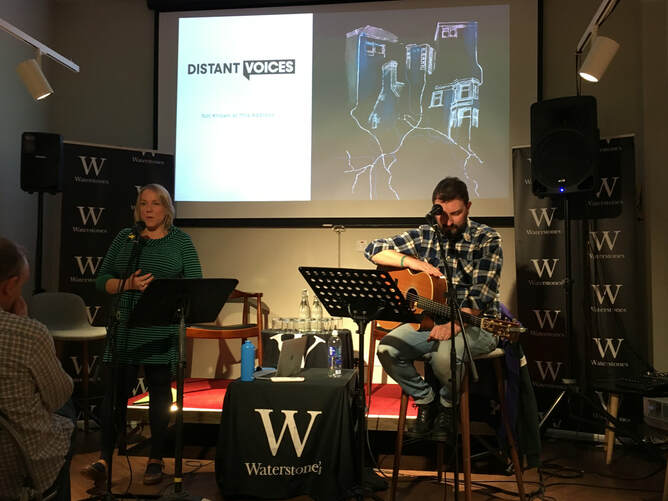
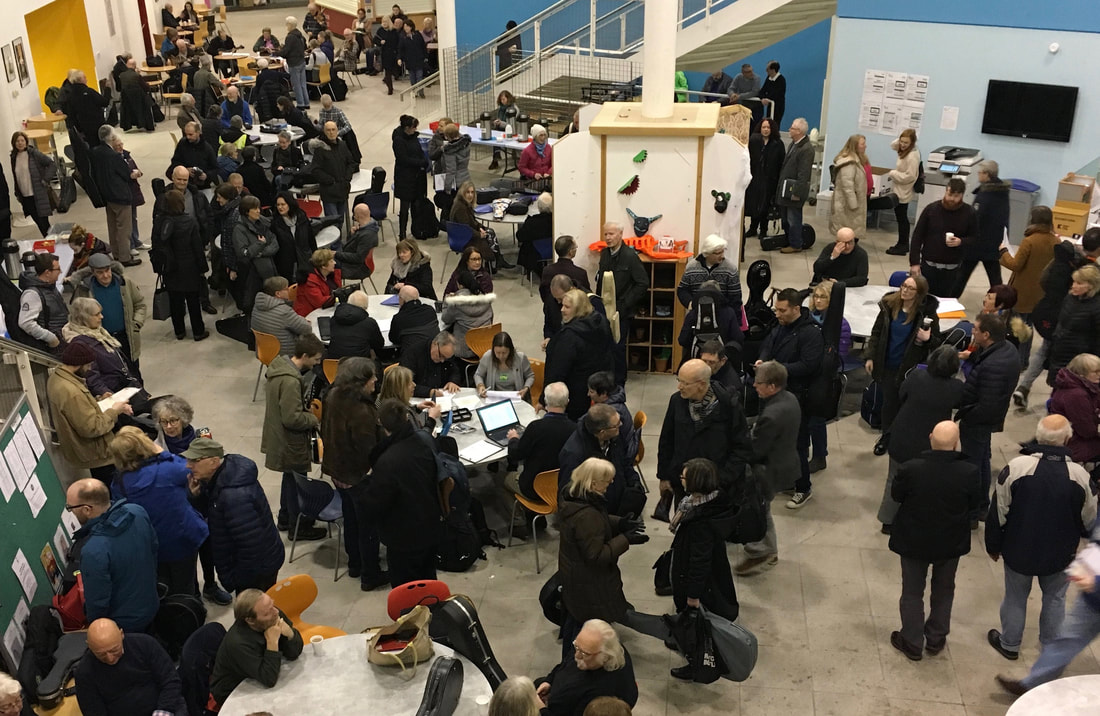
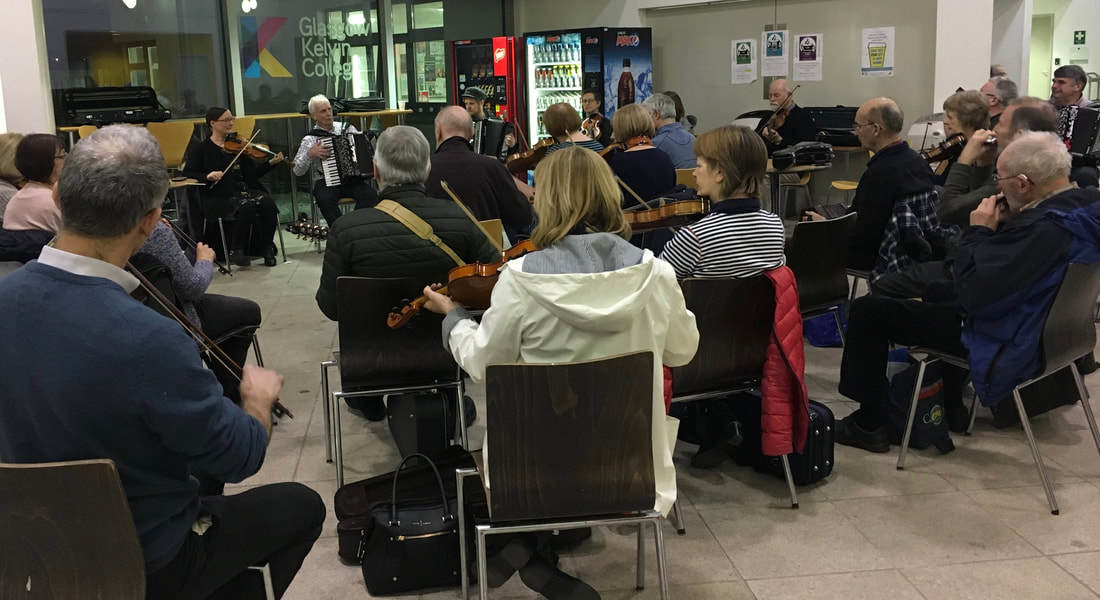
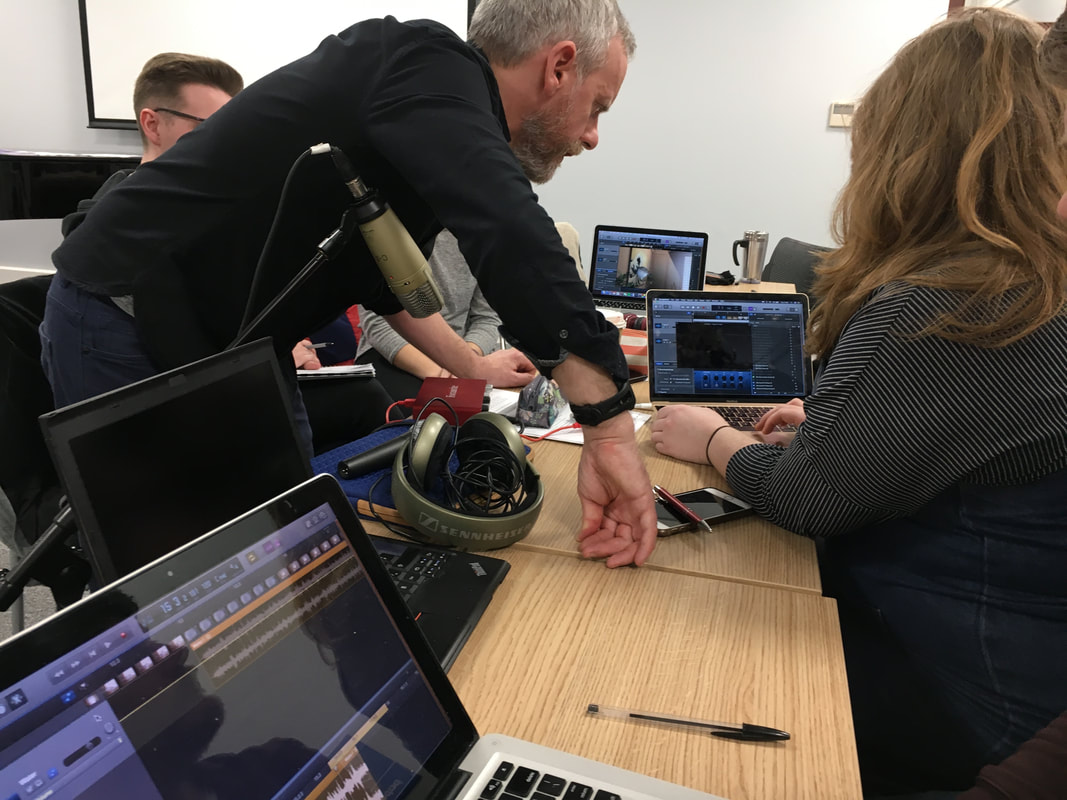
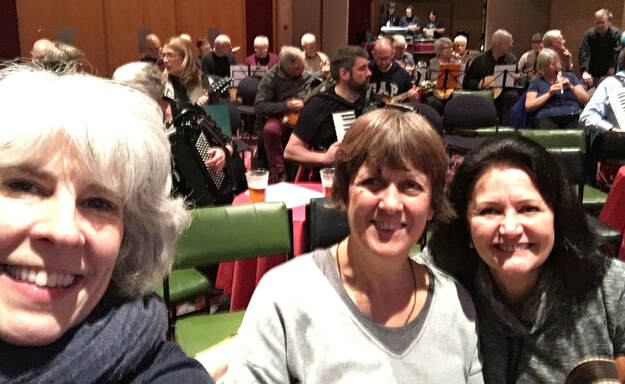
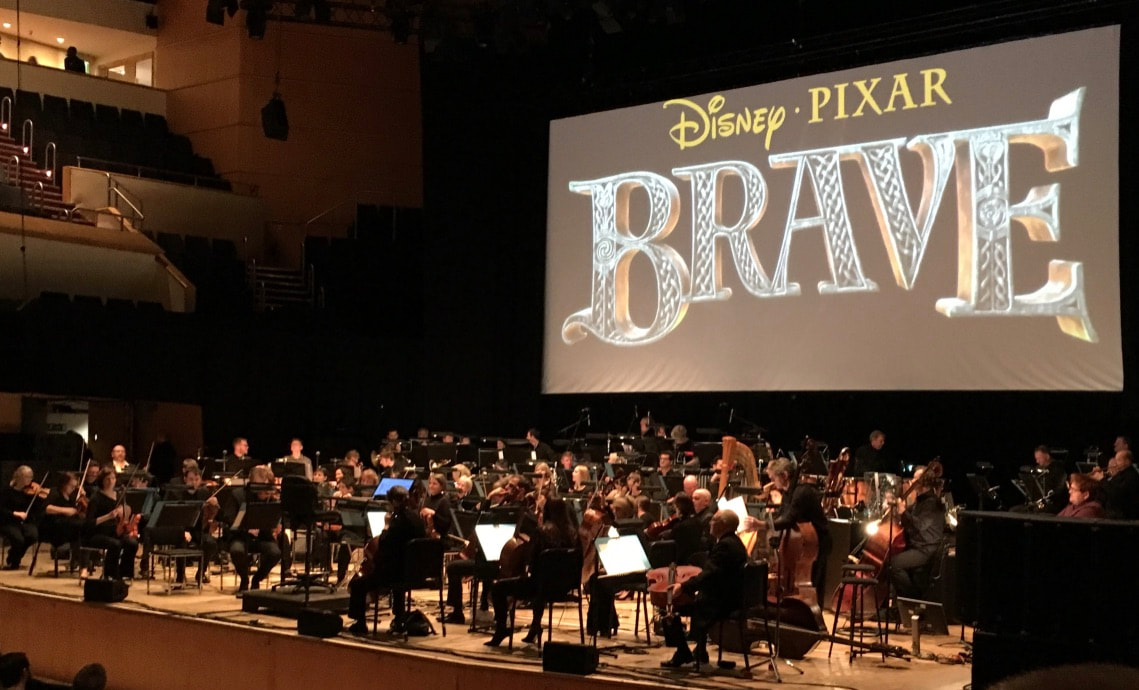
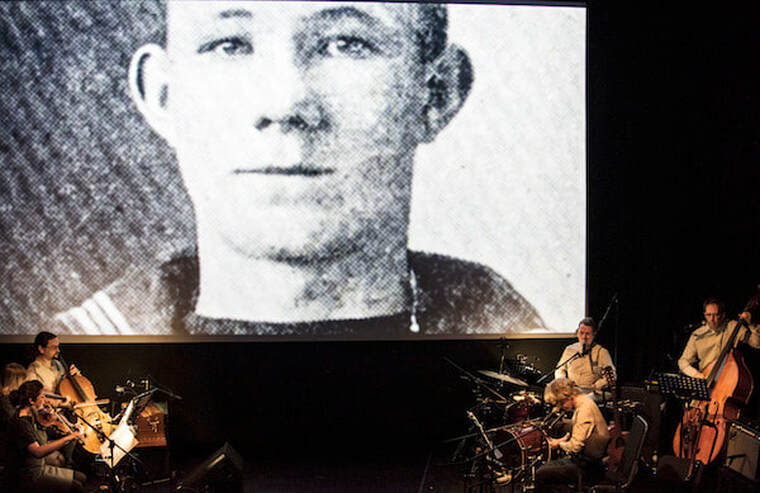
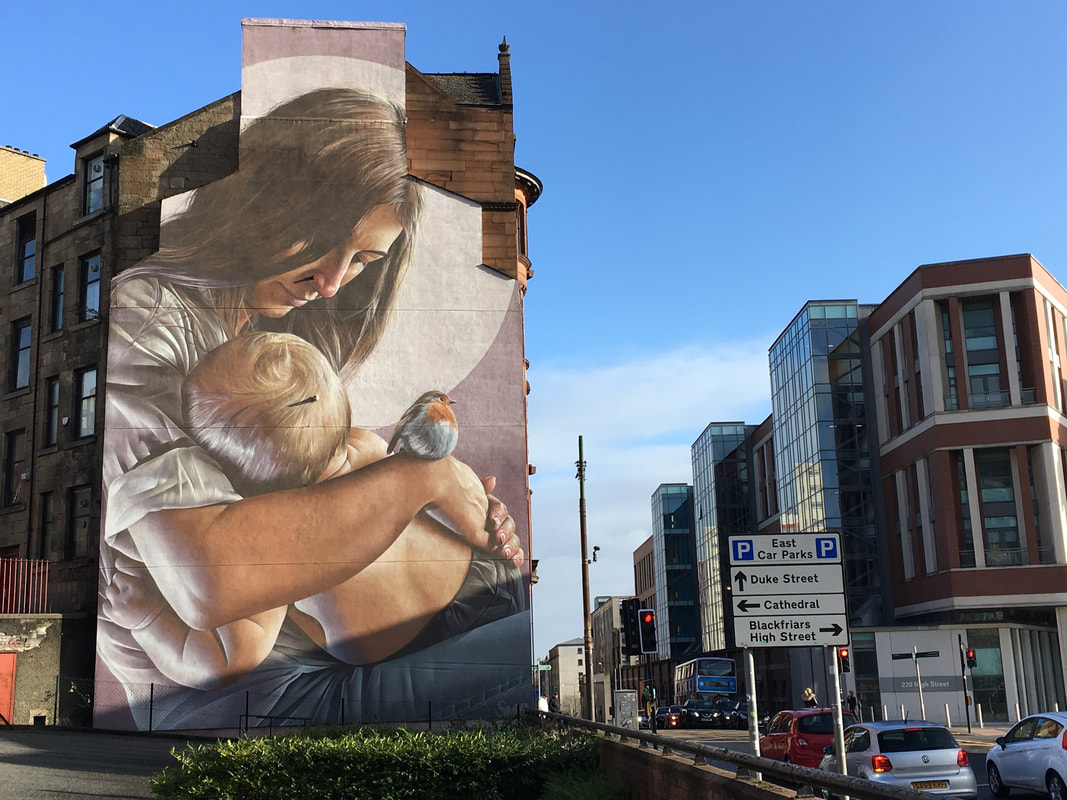
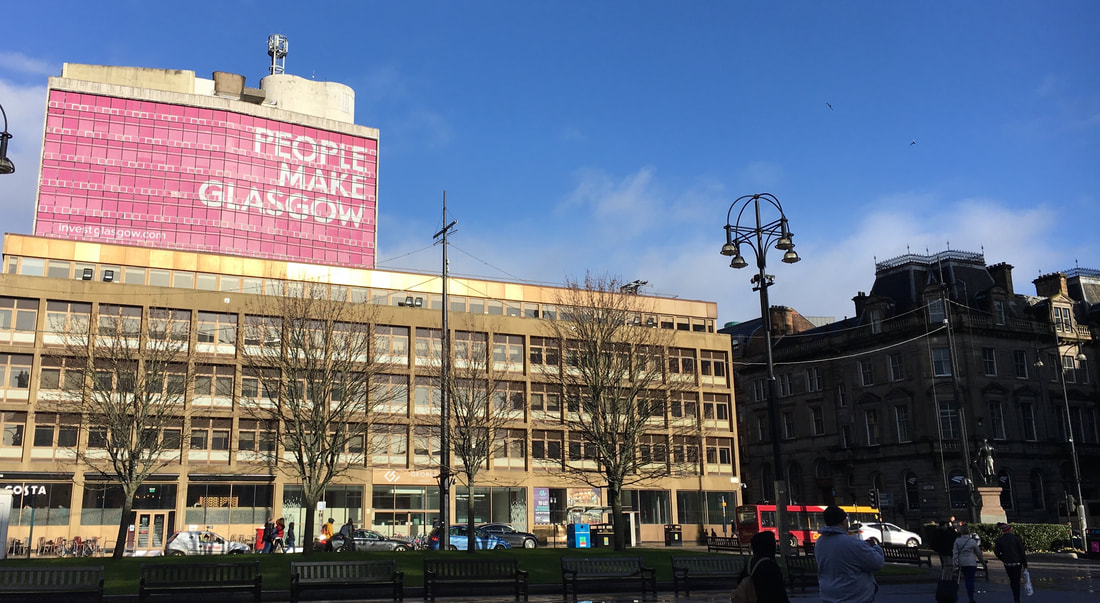
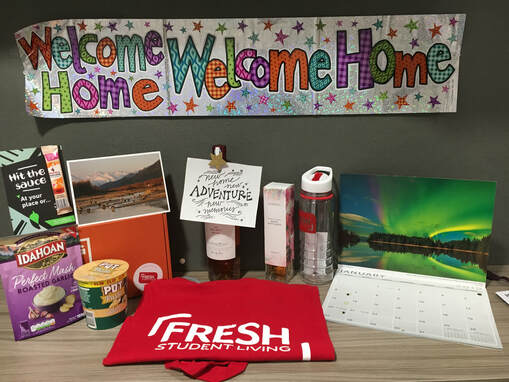
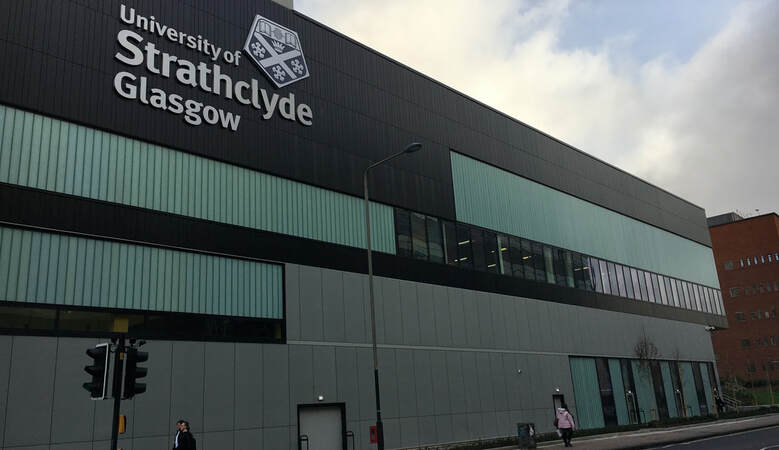
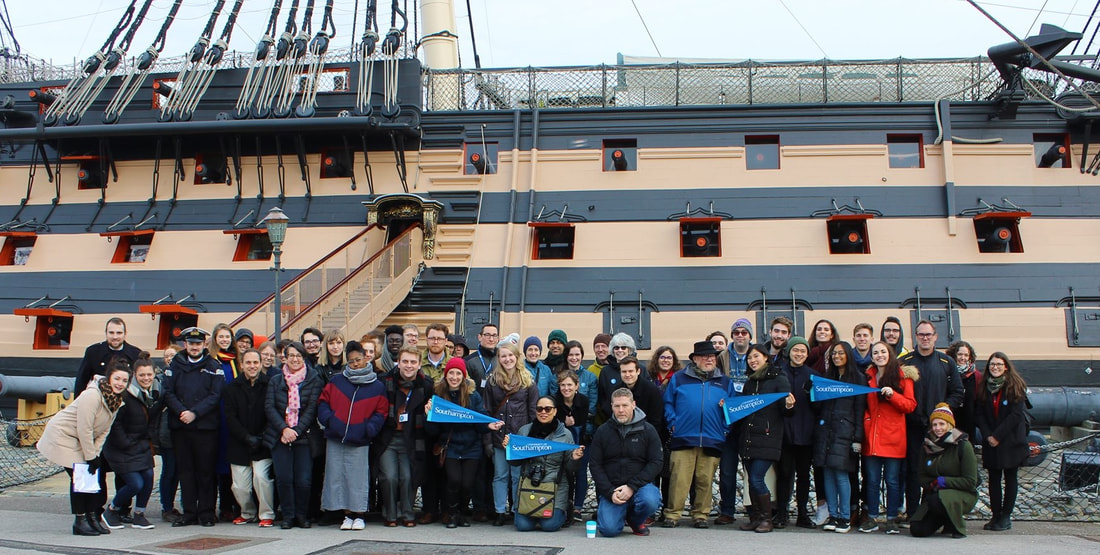
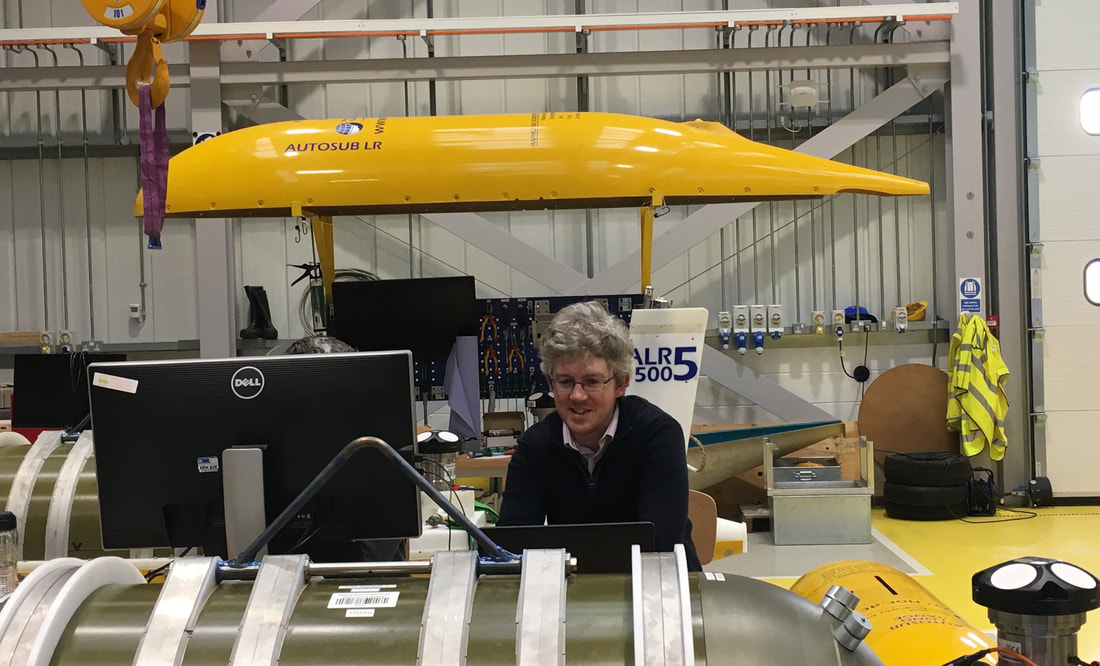
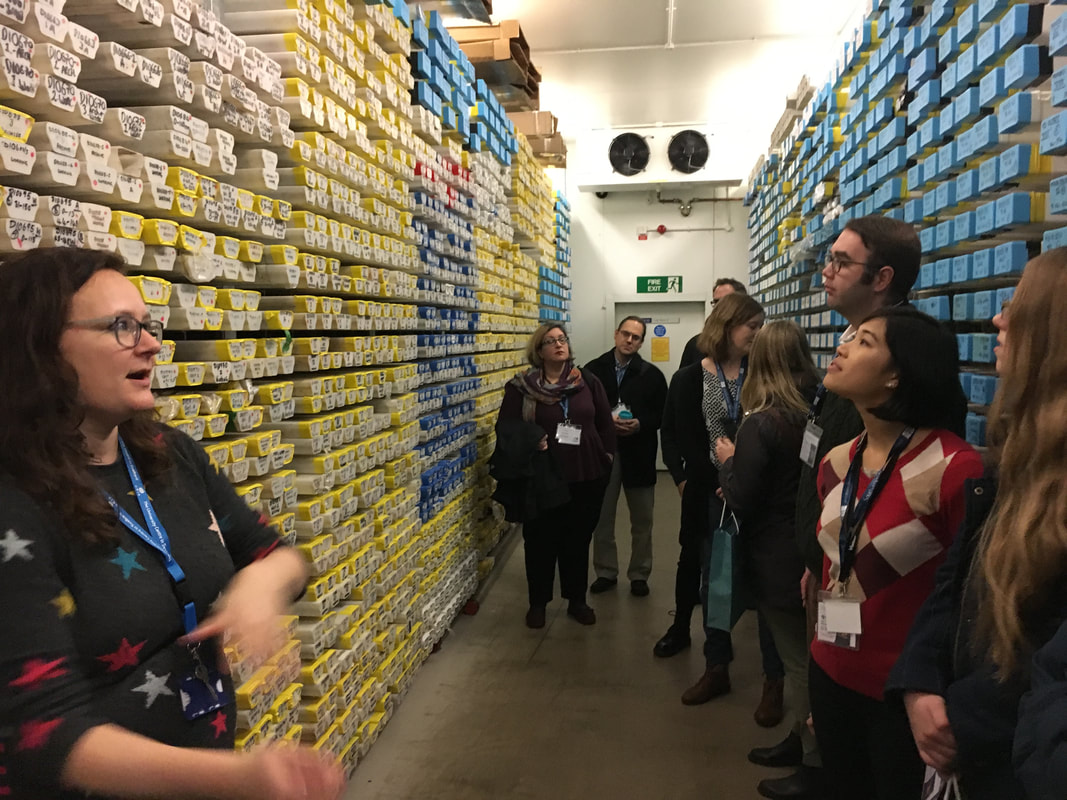
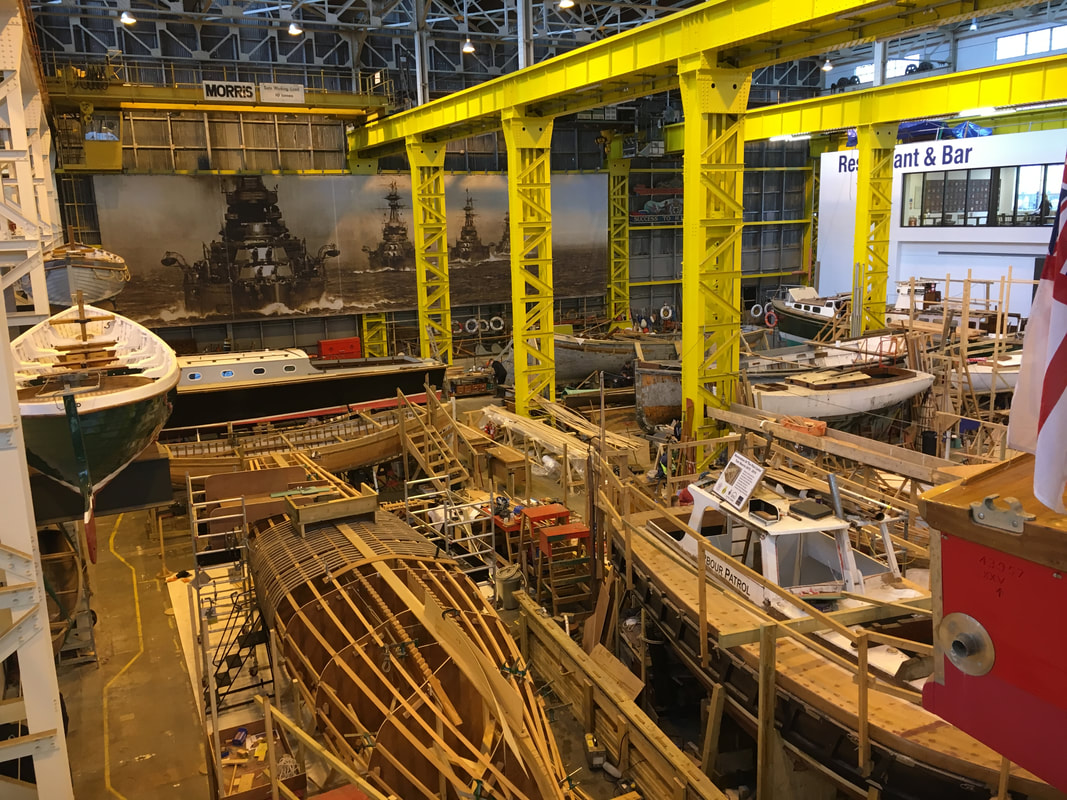
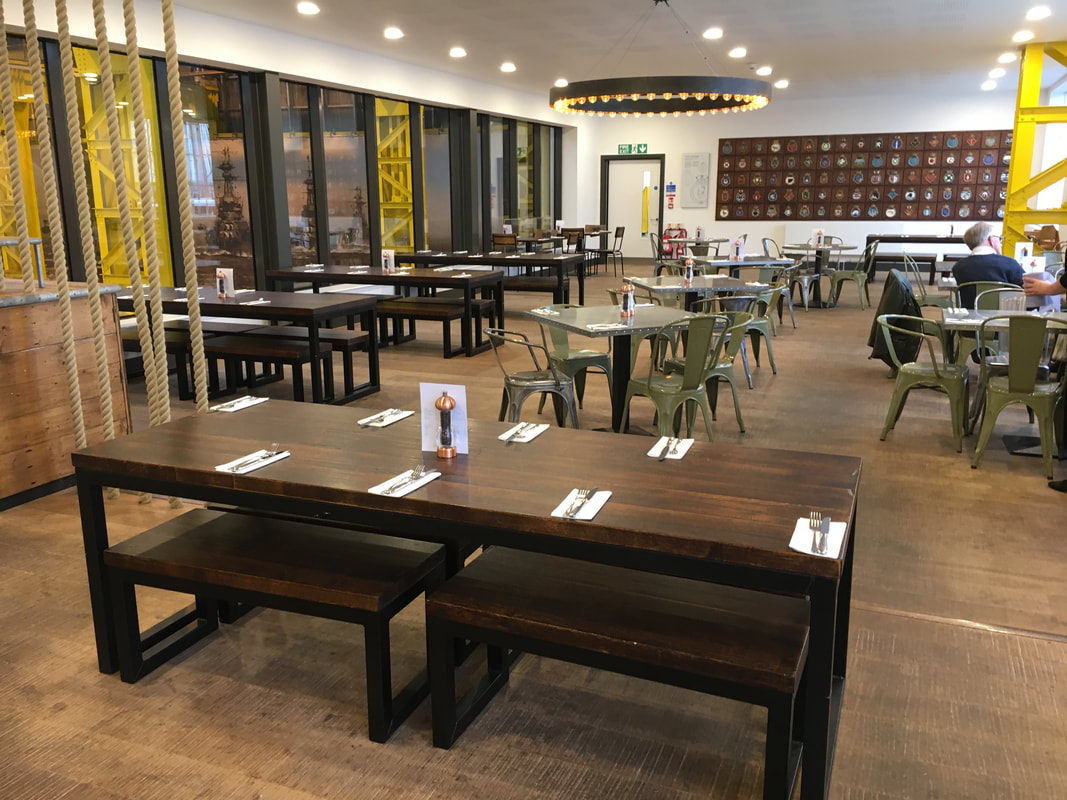
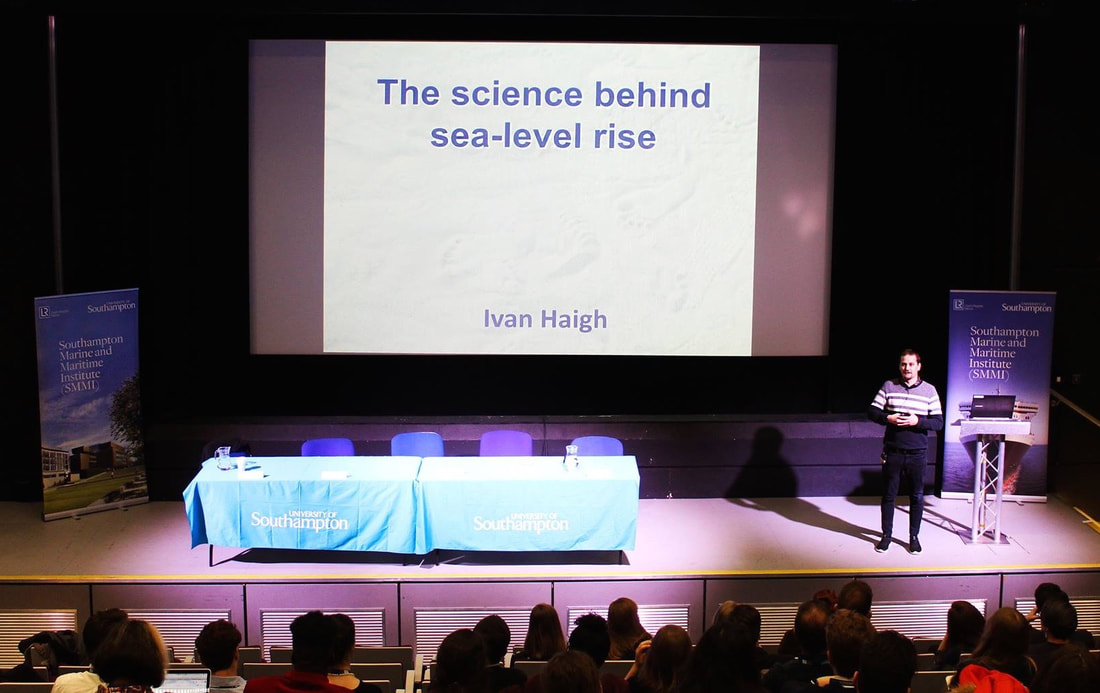
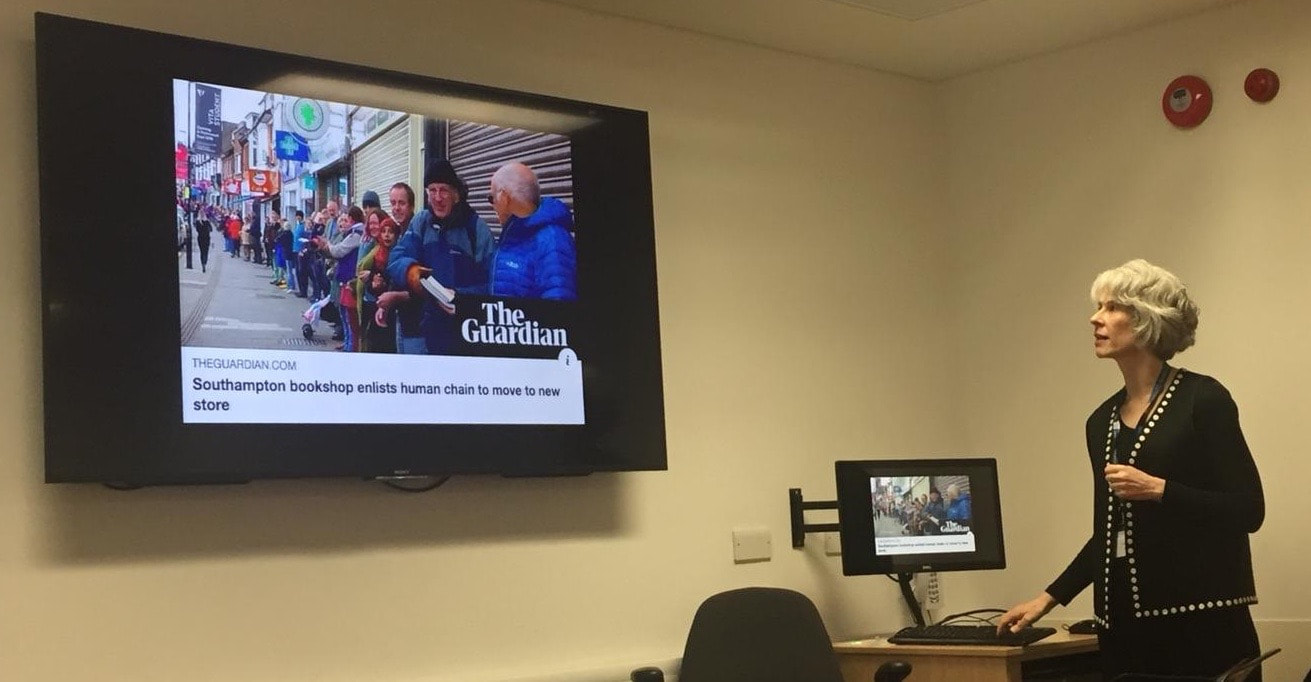

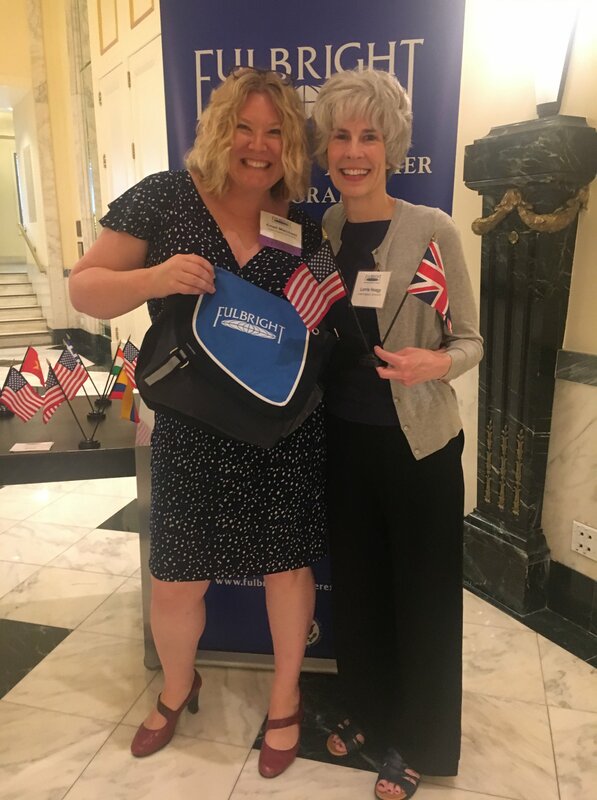
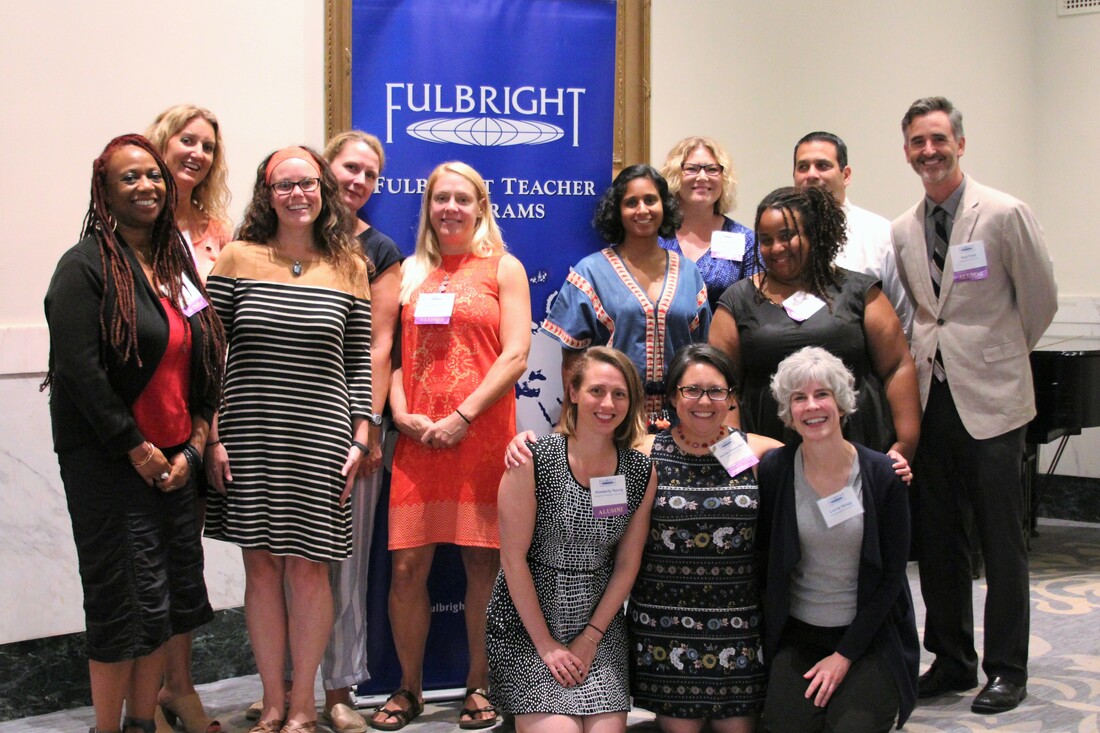
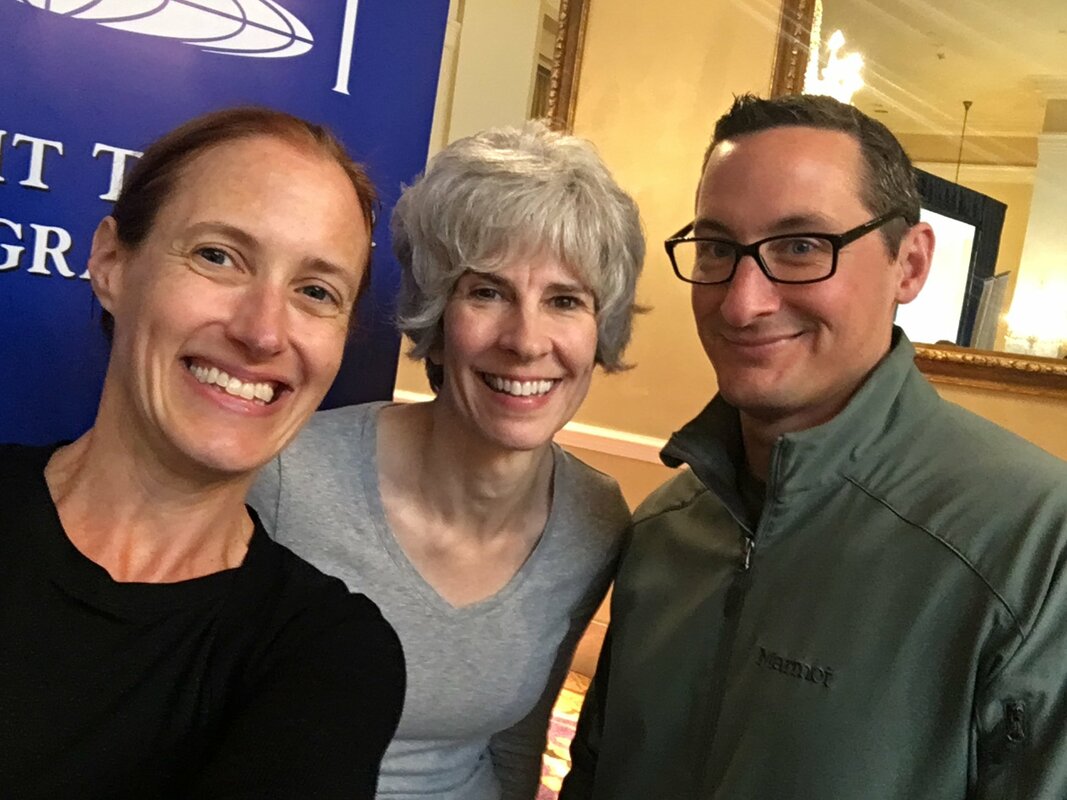
 RSS Feed
RSS Feed
